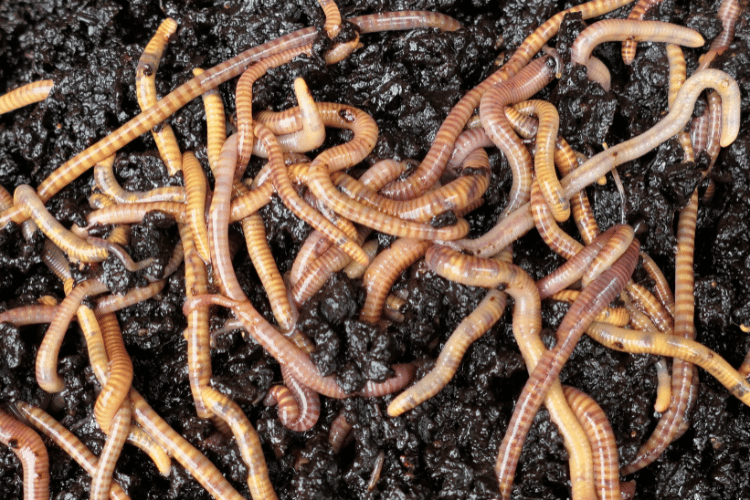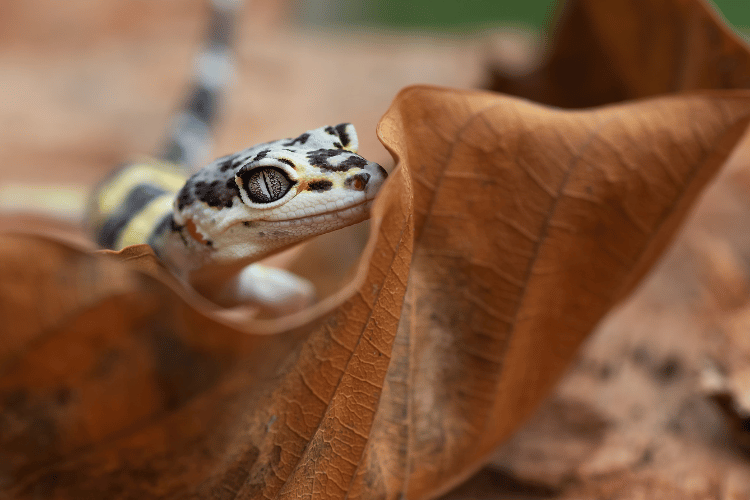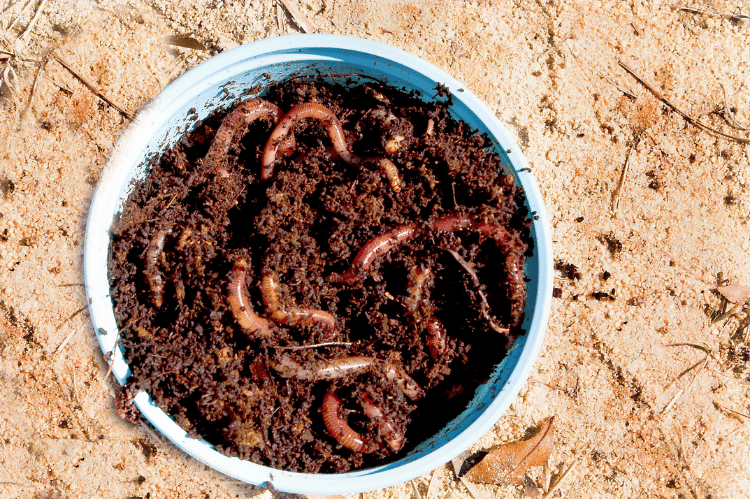The diet of a leopard gecko consists of various live insects like locusts, crickets, and worms. Still, can leopard geckos eat nightcrawlers?
Nightcrawlers are large earthworms that are typically used for fishing. Yet, they make perfect meals for your pet leopard gecko, granted your reptile is large enough to manage the worm.
Do you want to find out more? In this article, we’ll tell you why nightcrawlers are ideal food for your leopard gecko, as well as other dietary considerations to keep your pet happy and healthy. Let’s dive in!

Can Leopard Geckos Eat Nightcrawlers?
Nightcrawlers are widely available in both pet and bait shops. Accordingly, they might be your first option as a dinner for your gecko.
Due to the worms’ large size, many leopard gecko owners are skeptical of using nightcrawlers as gecko food. However, as long as your leopard gecko is large enough, it should be able to handle nightcrawlers.
The rule of thumb is to feed your leopard gecko food that’s no larger than the size of its head.
Benefits of Nightcrawlers for Leopard Geckos
Worms, in general, have great nutritional value. They’re rich in protein, fat, and water, all of which your leopard gecko needs plenty of.
Nightcrawlers are an ideal way to diversify your pet’s diet. If you find your gecko bored with eating crickets and other insects, simply throw nightcrawlers in the mix every once in a while. Chances are, your reptile will love the new treat.
The best part about feeding your leopard geckos nightcrawlers is that you can gut-load the worms.
Instead of supplying the leopard gecko with essential vitamins and minerals externally, gut-loading the worms ensures your pet has all the nutrients.
You can do this by giving the nightcrawlers calcium and vitamin-rich worm chow before feeding them to the geckos.
Disadvantages of Nightcrawlers for Leopard Geckos
Unfortunately, just because you can get nightcrawlers just about anywhere, doesn’t mean they’re safe for your geckos.
To explain, some fishing stores sell worms that have been sprayed with pesticides or other chemicals. For this reason, you should only get nightcrawlers from reputable stores, or even grow them yourself!
Since nightcrawlers are larger than other insects, you should offer them to your reptile in moderation. This way, you avoid your gecko gaining weight.
Additionally, a leopard gecko must have a varied diet. That’s because you want to ensure your pet gets all of its nutritional needs.
That’s not all. Most leopard geckos are picky when it comes to food. So, they might turn their noses to nightcrawlers. Moreover, if your gecko seems to like the large earthworms, it’ll probably grow to dislike the meal if that’s the only thing you feed your pet.
What Do Leopard Geckos Eat?
Leopard geckos can eat live feeder insects or other commercial lizard food you might find at pet stores.
As a pet owner, if you want to feed your pet live insects, yet you’re worried about the drawbacks of nightcrawlers, there are various other options you can try, including the following:
Mealworms
Mealworms are the most popular live reptile food. Not only can you find them in most pet stores, but you can also make your own mealworm farm. Mealworms are also excellent for composting!

These types of worms are perfect as a primary food source for your reptile friend. Though they might have a high fat content, and less calcium than optimal, adding other nutrition sources will be sufficient for your pet to get all its needs met.
If you have a mealworm farm, be wary of mealworm beetles. These insects should never be a regular part of your gecko’s diet. The reason is that their shells are too hard for lizards to digest.
Crickets
Another superb feeder insect for leopard geckos is crickets. They have relatively low fat and high protein content. Still, you should dust the crickets with vitamin powder, as you can’t gut-load them.
Crickets naturally hide and burrow. In turn, this triggers your leopard gecko’s hunting instincts, keeping them happy and healthy.
Unfortunately, crickets are hard to keep. They take up a lot of space, are loud, and are prone to escaping. Accordingly, if you want low-maintenance insects, crickets shouldn’t be the primary food.
Dubia Roaches
Roaches might be the last thing you think of when feeding your geckos. Yet, dubia roaches are a great source of protein. Furthermore, they’ll keep your pet’s diet varied, so your gecko won’t get bored.
Dubia roaches don’t have a hard exoskeleton. Their chitin content is relatively low, making them easy to digest. They also provide your reptile with much-needed calcium.
Though starting a roach farm seems intimidating, dubia roaches are pretty easy to keep. They’re also odorless, which means you can keep your roach farm anywhere in your home!
Tips on Feeding Leopard Geckos

Every gecko owner wants their reptile to be in the best health possible. That’s why paying attention to what you’re feeding your pet isn’t enough. Instead, you should also monitor the gecko’s appetite, feeding frequency, and amount of food.
Here are some tips that’ll make feeding your gecko a breeze:
- Dust your feeder insects with calcium powder.
- If you’re not using UVB lambs, use a calcium powder that includes vitamin D3.
- Gut-load the insects for at least 24 hours before offering them to the geckos.
- Don’t forget to supply your gecko with fresh, shallow water.
- Feed your adult gecko two bugs per inch of its body every other day.
To Conclude
Can leopard geckos eat nightcrawlers?
Nightcrawlers are great meals for your leopard geckos. They’re rich in fat and protein, and readily available. Additionally, you can supply your pet with extra nutrients by gut-loading the nightcrawlers.
The main concern when it comes to feeding your geckos nightcrawlers is the quality. You need to buy worms that are specific for lizards and reptiles, not fish bait.
The geckos might also get sick of eating the same type of food, so you should use other feeder insects along with nightcrawlers. Some excellent options include mealworms, locusts, crickets, and dubia roaches.
- Can Leopard Geckos Eat Silkworms? - March 11, 2024
- Do Leopard Geckos Climb? - March 4, 2024
- Do Leopard Geckos Bask? The Answer Will Surprise You - February 21, 2024
